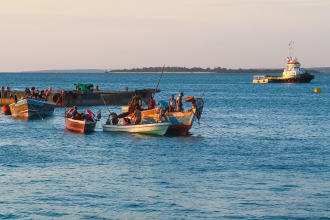A climate pulse model of long-run development.
Ola Olsson, Professor of Economics, University of Gothenburg, will be presenting work on his new book. The title of the presentation is A climate pulse model of long-run development. Meeting ID: 639…
Ola Olsson, Professor of Economics, University of Gothenburg, will be presenting work on his new book. The title of the presentation is A climate pulse model of long-run development. Meeting ID: 639…
Small-scale agriculture is one of the fundamental economic sectors in Chile. An increased frequency and intensity of extreme weather events due to climate change suggest a higher weather risk for the future, with potential consequences for crop choices. These effects are expected to be greater in dryland areas, where producers are more vulnerable to shocks and, therefore, less able to protect themselves against these risks.
Welcome to the first seminar LAERE - EfD - Input Efficiency, Technology Adoption and Disadoption: Two RCTs on Water Saving Technologies March 3rd, we will offer our first Seminar LAERE-EfD. In this…

The Blue Resources for Development presents some of its’ research results in a special section in the 2021 March issue of Marine Policy. The focus is on fisheries performance. “Fisheries performance…
AFAERE Webinar Panel Speakers: (1) Babatunde Abidoye: Global Policy Advisor, United Nations Development Programme (UNDP), New York, USA; (2) Jean-Paul ADAM: Director, Technology, Climate Change and…

Dr. Nnaemeka Chukwuone has been elected to serve a second term as the Director of Resource and Environmental Policy Research Center, Environment for Development (REPRC-EfD) Nigeria. Nnaemeka Chukwuone…
A love of Chinese and English literature initially drew Dr. YuanYuan Yi to the halls of academia. But while in her first job at the Chinese Center for Agriculture and Policy and later at the China

Dr. Mudit Kapoor, senior EfD and CECFEE member, has been appointed advisor to the newly formed National Data and Analytics Platform at NITI Aayog, the policy think tank of the government of India. The…

A group of EfD researchers has written a report called A framework for selecting and designing policies to reduce marine plastic pollution in developing countries. The Global Plastic Action…